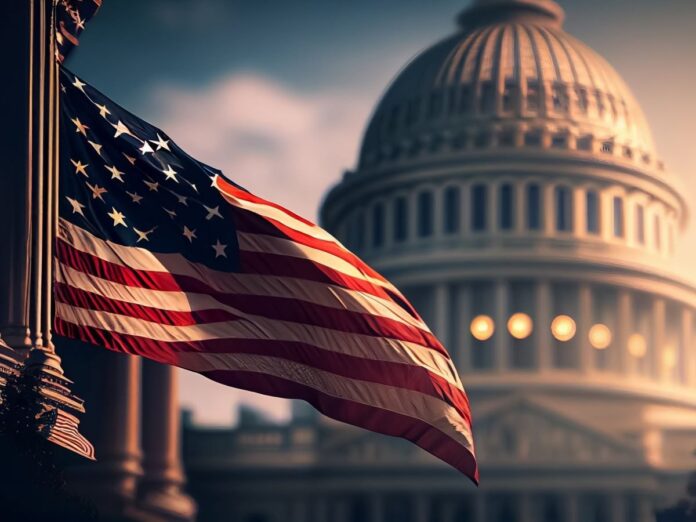The Politics of America: A Deep Dive into the Heart of Democracy
In the grand tapestry of global politics, few nations command as much attention and influence as the United States of America. From its founding principles of liberty and democracy to its status as a superpower shaping global affairs, the politics of America are a fascinating and multifaceted subject worthy of exploration.
At its core, American politics are defined by a complex interplay of institutions, ideologies, and interests that reflect the nation’s diverse population and historical evolution. From the hallowed halls of Congress to the chaotic arena of electoral campaigns, the American political landscape offers a rich tableau of competing visions and values.
One of the defining features of American politics is its two-party system, dominated by the Democratic and Republican parties. While other parties exist, they struggle to gain significant traction due to structural barriers and the entrenched power of the major parties. This duopoly gives rise to a dynamic political competition characterized by shifting alliances, ideological polarization, and fierce partisan battles.
Ideologically, the American political spectrum spans a wide range, from staunch conservatism to progressive liberalism and everything in between. This ideological diversity is reflected in the platforms of the two major parties, which often clash over issues such as healthcare, immigration, gun control, taxation, and foreign policy. The tug-of-war between competing visions of the role of government and the distribution of resources animates much of American political discourse and policymaking.
Central to the functioning of American democracy are its institutions of governance, chief among them the presidency, Congress, and the judiciary. The presidency, with its immense powers and global influence, occupies a central place in American politics, serving as both a symbol of national leadership and a focal point of political contention. The powers of the presidency, as outlined in the Constitution, have evolved over time, shaped by historical precedent, legislative action, and judicial interpretation.
Congress, comprising the Senate and the House of Representatives, serves as the legislative branch of the federal government, tasked with making laws, overseeing the executive branch, and representing the interests of the American people. The dynamics of Congress, marked by partisan gridlock, procedural hurdles, and intense lobbying, often determine the fate of key policy initiatives and shape the contours of national debate.
Meanwhile, the judiciary, led by the Supreme Court, plays a crucial role in interpreting the Constitution, adjudicating disputes, and safeguarding individual rights. The appointment of Supreme Court justices, with lifetime tenure and significant influence, is a highly politicized process that reflects the ideological stakes of American jurisprudence.
Beyond the formal institutions of government, American politics are also shaped by a complex web of interest groups, media organizations, grassroots movements, and corporate influences. These various actors vie for power, influence public opinion, and shape the policy agenda through advocacy, lobbying, and mobilization.
The role of money in American politics is a perennial issue, with concerns about the influence of wealthy donors, corporate interests, and special interest groups on the democratic process. Campaign finance laws, disclosure requirements, and efforts to limit the influence of money in politics have been hotly debated topics, reflecting broader tensions over the relationship between wealth, power, and democracy.
In recent years, American politics have been roiled by a series of seismic shifts and transformative events that have upended established norms and reshaped the political landscape. The election of Donald Trump as president in 2016, fueled by populist rhetoric and anti-establishment sentiment, exposed deep divisions within American society and sparked a wave of political upheaval.
The Trump presidency, marked by controversy, polarization, and unconventional governance, laid bare the fault lines of American politics and tested the resilience of its democratic institutions. From the tumultuous events of the 2020 presidential election to the storming of the Capitol by a mob of Trump supporters, the past few years have been a crucible of democracy, challenging the norms of civility, truth, and accountability that underpin American governance.
Amidst these challenges, however, there are signs of hope and resilience in the American political landscape. The election of Joe Biden as president in 2020, promising a return to unity, decency, and competence, offers a glimmer of optimism for those seeking to heal the divisions of the past and forge a path forward.
As America grapples with the complex realities of the 21st century—from the ongoing COVID-19 pandemic to the urgent imperatives of climate change, racial justice, and economic inequality—the politics of America will continue to evolve and adapt, reflecting the aspirations, values, and struggles of its people. In this dynamic and ever-changing landscape, the fate of American democracy hangs in the balance, shaped by the choices, actions, and collective will of its citizens.





